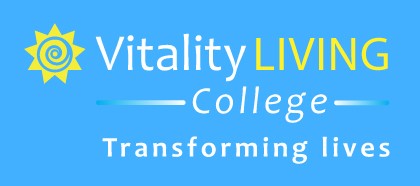EFT for Stuttering: Break Free from Speech Challenges

In this article, you will learn about the basics of stuttering, its signs and symptoms, triggers of stuttering, ability to cure it with a self-help technique called Emotional Freedom Techniques that offers you the stuttering relief you've been seeking.
Do you often find yourself stuttering or stumbling over words?
Do you think it's more than just a struggle to speak fluently?
You can be correct. Stuttering is not merely about speech; it's deeply tied to emotions and experiences. The frustration of not being able to express yourself clearly, the embarrassment from unexpected blocks in speech, and the isolation it can bring – these are struggles many with stuttering understand deeply.
It's more than just a speech pattern; it's a daily emotional journey, where every sentence can feel like a hurdle, and every successful communication is a victory.
If you constantly battle with stuttering, feeling frustrated and misunderstood, know there's hope. Imagine a world where your words flow effortlessly without the fear and anxiety that stuttering brings.
This isn't just a dream; it's a possibility with EFT (Emotional Freedom Technique) Tapping. EFT Tapping offers a path to not just manage but potentially overcome the challenges of stuttering and speak fluently.

What is Stuttering?
Stuttering is a condition marked not only by disrupted speech patterns but also by its deep impact on emotions and self-assurance.
It involves repeating syllables, prolonging sounds, or unexpected pauses in speech. These speech disruptions can trigger feelings of anxiety and hinder effective communication.

Understanding stuttering is crucial because it's more than a speech impediment; it's a complex interplay of speech, emotions, and self-perception.
When practicing EFT Tapping for stuttering, emphasis is on the fact that stuttering is a common challenge, and with the right approach, it can be managed effectively, enhancing both speech and confidence (2).
The Basics Behind Stuttering
Stuttering is more than just repeating sounds. It's a complex challenge, deeply rooted in both emotional and psychological factors. Stuttering can impact your life in various ways, affecting your ability to communicate and express yourself freely, leading to frustration and a loss of confidence.
In many cases, stuttering is not just about the words that are hard to say but also about the emotions and memories tied to these moments of speech difficulty. Understanding stuttering from this holistic perspective is crucial for effective management and therapy.
Signs and Symptoms of Stuttering
Recognising stuttering goes beyond the obvious repetition of sounds or syllables. The signs can be subtle, yet they profoundly affect speaking and communication.
If you are facing stuttering issues, you might also experience prolongations, where a sound is stretched out.
Other symptoms include speech blocks, where a person can find themselves unable to make any sound at all. These interruptions in the flow of speech often lead to visible physical tension or struggle in the face and neck.

Additionally, secondary behaviours, like blinking excessively or lip tremors, might accompany the stutter. It's important to notice these signs, as they can give you deeper insights into your or your client’s experience with stuttering.
Triggers of Stuttering
Understanding what triggers stuttering is a significant step toward managing it. Triggers are varied and personal. For some, emotional states like anxiety, fear, or excitement can exacerbate stuttering.
Stressful situations, whether in personal life or work environments, often play a critical role. Social contexts, like speaking in public or conversing in groups, can also trigger stuttering episodes. By identifying these triggers, you can begin to develop strategies to reduce their impact (1).
This might involve techniques to manage anxiety, exercises to improve speech fluency, or therapy sessions focused on dealing with specific social fears. Remember, each person's experience with stuttering is unique, and so is their path to smoother, more confident speech.

Is There a Cure for Stuttering?
As a dedicated EFT certified professional in speech therapy, I often encounter the question: Is there a definitive cure for stuttering?
The answer, while complex, is rooted in understanding the nature of stuttering. This speech challenge is not just about the physical act of speaking; it's deeply intertwined with emotions and personal experiences.
Stuttering, clinically known as a fluency disorder, is intricately connected with emotions in a multifaceted way. When an individual who stutters anticipates a challenging speaking situation, the anxiety that builds up can trigger the sympathetic nervous system, heightening their stutter.
This heightened state of arousal can lead to increased muscle tension in the speech apparatus, further disrupting the fluency of speech.
Additionally, the experience of stuttering can lead to feelings of embarrassment, shame, and frustration, creating an unhealthy cycle where emotional distress increases the severity of the stutter, which in turn amplifies the emotional response.
This complex relationship between stuttering and emotions suggests the importance of a holistic approach in treatment, addressing not only the physical aspects of stuttering but also its emotional and psychological dimensions.
That’s where a holistic and emotionally led therapeutic technique like Emotional Freedom Techniques or EFT Tapping can greatly help in exploring the root cause of stuttering and help in reducing or overcoming stuttering.
"The one thing I've learned is that stuttering in public is never as bad as I fear it will be."
John Stossel
Understanding EFT for Stuttering: Stuttering Relief with EFT Tapping
EFT, often referred to as Tapping, is not your typical speech therapy.
It's a unique approach that focuses on the emotional aspects of stuttering. By Tapping on specific points on the body, EFT aims to release the emotional blockages that contribute to stuttering.
Here are a few ways EFT Tapping can help:1.
Reducing emotional stress and anxiety around stuttering
By tapping on certain body points and exploring the emotions that you feel while stuttering, you can experience a reduction in the intensity of these feelings. This can lead to a decrease in the frequency and severity of stuttering episodes.
2.
Breaking the emotional feedback loop
Stuttering often creates a negative feedback loop of anxiety and fear of speaking, which in turn amplifies the stutter. EFT Tapping can help break this cycle by addressing the underlying emotional triggers, thereby reducing the fear and embarrassment linked to stuttering.
3.
Improving self-esteem and confidence
Stuttering can also lead to a struggle with self-esteem issues. EFT Tapping can aid in building confidence and self-acceptance, which are crucial for effective communication and being able to speak fluently.
4.
Addressing past traumas
In some cases, stuttering is linked to past emotional traumas or negative experiences. EFT Tapping can help you in processing and releasing these emotional memories safely, thereby potentially reducing the impact they have on your speech.
5.
Enhancing overall emotional regulation
As stuttering is accompanied by a lot of overwhelming emotions like nervousness, self-doubt, low confidence, stress, or anxiety, regular practice of EFT Tapping can help improve emotional regulation, which can further help you manage your reactions and emotions more effectively in the long run.
The benefits of tapping goes beyond the surface, delving into the realms of feelings and memories and addressing the root causes of stuttering.
Steps Towards Your Journey to Fluent Speech with EFT
Here's a step-by-step guide for using EFT Tapping to address stuttering:
Step 1:
First, Use EFT Tapping on the Feeling of Stuttering
The first step is to explore the physical sensations in the body associated with stuttering and use the tapping process to reduce the sensations.
1.
Investigate the physical nature of stuttering:
Connect with the feelings associated with stuttering and notice where you feel it in the body.
Briefly, ask yourself the following questions to explore further:
What makes you afraid of speaking?
How do you feel when you stutter and are unable to speak fluently?
What are the sensations like while stuttering? For example, rough or smooth.
2.
Measure the level of stutter:
"What number would you associate your stutter with, where 10 is really high and 1 is not high at all?"
Go with whatever comes up spontaneously, without thinking too much about it.
3.
Develop a set-up statement:
Begin by creating a set-up statement that acknowledges the issue. For example,
"Even though I stutter and it makes me so [add the emotions you feel while stuttering], I deeply and completely accept myself."
While saying the set-up statement, tap the karate chop point, on the side of your hand.
4.
Tap on the facial EFT Tapping points:
Start tapping on the facial and upper body EFT Tapping Points:
- Eyebrow: I can’t speak freely and stutter ________
- Side of the Eye: It makes me feel ________
- Under the Eye: It's at a number _______
- Under the Nose: It makes me feel _______
- Chin: It's in my ________ at a number ________
- Collarbone: It makes me feel _________
- Under the Arm: So ____________
- Thumb: So much ________________
- Index Finger: I stutter because ___________
- Middle Finger: I feel it in my ______________
- Little Finger: So _______________
5.
Close the sequence:
Come back to the EFT Karate Chop Tapping points and repeat once,
"Even though I stutter, and it makes me feel [____________], I deeply and completely accept myself."
6.
Relax:
Take a gentle breath in and out, and sip water.
7.
Test:
At the end of the EFT Tapping, you can ask yourself (or your client) the following questions:
- What number is your stuttering at now?
- Did you experience a change during tapping?
- How did it make you feel?
You can go back to Step 1 and repeat this process if you feel like the number could come down a little more.
Step 2:
Discover Past Experiences of Stuttering and Clear Them
To explore past experiences of stuttering, ask the following questions:
When have you stuttered before?
What happens that triggers the stuttering?
Was there ever a time when you did not stutter at all?
Step 3:
Explore any Limiting Beliefs that Prevented You from Overcoming Your Challenge with Stuttering
Limiting beliefs are thoughts that can be conscious or unconscious and are greatly responsible for low self-esteem and self-sabotage in a person. Such beliefs are deep-seated, often negative, and shape your behavioural and emotional responses.
For example, beliefs like "I will always stutter" or "I'm not capable of speaking fluently" can reinforce stuttering patterns. These negative self-perceptions heighten speech-related anxiety and tension, exacerbating the stutter.
Moreover, these beliefs erode self-confidence and self-esteem, crucial elements in effective communication and stuttering management.
Explore these beliefs one by one and tap on each one individually until you feel their effects reducing to a comfortable level.
Step 4:
Close with Positive EFT Tapping to Overcome Stuttering
Once you've addressed the negative aspects, transition to a positive round. Create a set-up statement that focuses on self-acceptance and improvement. For example,
"Even though I stutter, and it makes me feel ___________, I am open to the possibility of speaking fluently and confidently. I deeply love and accept myself anyway."
Transforming Speech: How EFT Tapping Unlocked a Young Boy's Confidence and Ended Years of Stuttering
“I worked with a 12-year-old client who had been experiencing stuttering since the age of 4.5. Additionally, he displayed mild inattentiveness and hyperactivity. Our approach began with tapping into his emotions.
He expressed feelings of embarrassment and shame that hindered his interactions with others. While delving into his experiences, we discovered that his first encounter with embarrassment and shame occurred at around 4 and a half years old, during his time in S.KG.
One particular incident stood out when he couldn't respond to a question in class, resulting in his teacher shouting at him for not paying attention. Frightened by this, he had an accident and was ridiculed by other children, which deeply impacted him.
Consequently, he developed a fear of speaking in front of others, and as he grew older, he gradually began speaking but struggled with stuttering.
We focused on addressing that memory and building his confidence. Our sessions centered on nurturing self-love and acceptance. Gradually, his stuttering began to decrease, and his attentiveness also improved. A few months ago, I received a call from his mother with incredible news - he had completely stopped stuttering.”
- Dr Shilpa, EFT Practitioner
Conclusion
Stuttering can make you feel helpless, wondering if you’ll ever be able to express yourself freely and fluently again. However, exploring the underlying root issues causing you to stutter is critical.
Remember, the path to overcoming stuttering is a journey, and it's one you don't have to walk alone. EFT Tapping stands as a powerful support, offering not just hope but tangible progress toward fluent speech. You have the strength within you to overcome this challenge, and with EFT, you can explore and unlock it.
Want to start your journey toward fluent speech with EFT? Discover more about how EFT Tapping can help you overcome stuttering. Visit our website to learn more and access valuable resources to guide you on this transformative path.
We also have solutions like Tapping for kids. Because every being deserves to express themselves with complete freedom.
Love,
Dr Rangana Rupavi Choudhari (PhD)
In summary, EFT (Emotional Freedom Technique) Tapping is an effective method for managing stuttering. Stuttering is not just a speech impediment but is deeply connected to emotions and experiences. EFT Tapping addresses these emotional blockages, offering a holistic approach to overcoming stuttering with a step-by-step approach.
References:

Learn Emotional Freedom Techniques for self healing or to become professionally qualified - More
Our other seminars:
For the full calendar of events.
Other articles you may be interested in:


